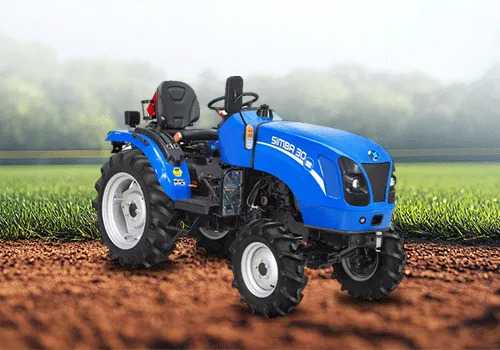Introduction
Agriculture has always innovated;?the advent of automated mini tractors is a mark of progress. They are compact, self-operating machines that are touted to revolutionize farming by working faster, requiring less labor, and being?gentler on the environment. But are they really a?game-changer? This blog will discuss the future of farming with autonomous mini tractors and how the agricultural industry is transforming as it moves into an era of innovation, convenience, and connection through?tractors and JCB price trends.
What?Are Autonomously-Powered Mini Tractors?
Autonomous mini tractors are small, autonomous machines used in the agricultural field that?can perform the required tasks without the requirement of human intervention. They navigate with GPS, AI-directed navigation systems, and sensors that allow them to precisely plow fields,?plant crops, and apply fertilizers. Larger farms are able to make?do with larger tractors, but for smaller and medium-scale farms, affordable and efficient farm machinery is essential to success or failure.
Benefits of Mini?Tractor with Robotics
Improved Efficiency?and Productivity
The conventional tractors need human operators, which brings?about labor costs and time constraints. In contrast, autonomous mini tractors can work around the?clock without needing breaks, providing a considerable increase in productivity. Also, by following image inputs of routes previously uploaded by the user, as such, it ensures captivating coverage?of fields and prevents unnecessary increases in fuel consumption and costs.
Cost-Effective Solution
As labor shortages?rise and wages remain high, farmers are in search of cost-effective solutions. Although autonomous mini tractors?do have a larger upfront cost, they eventually pay for themselves, particularly through reduced reliance on labor and the potential for optimized fuel usage. In addition, mini tractors are affordable and accessible to small farm owners compared?to full-sized autonomous tractors.
Sustainability?and Precision Farming
Precision?farming seeks to maximize crop output at the least resource cost. Utilizing AI-driven decisions and advanced?sensors, autonomous mini tractors apply fertilizers and pesticides only where needed, minimizing wastage of chemicals and soil degradation. This?results in more eco-friendly and sustainable farming practices.
Reduced Carbon Footprint
Many of these autonomous mini tractors are electric or hybrid-powered, which can reduce their carbon emissions over?the traditional diesel-powered full-size tractors. This comes in line with global efforts to green?agriculture and fight climate change.
Challenges for?Autonomous Mini Tractors
Autonomous mini?tractors have great potential, but they also face challenges that must be overcome in order to produce widespread adoption.
High Initial Investment
Although mini?tractors are cheaper than full-sized autonomous tractors, their upfront costs continue to be a handbrake for many farmers. Furthermore, the incorporation of AI and GPS technology raises the cost, deterring?farmers from purchasing.
Technological Limitations
GPS and software powered by artificial intelligence, which might?malfunction in areas with poor connectivity or in extreme climatic conditions, enable autonomous mini tractors. In remote areas, some farmers may not?have access to technical support and software updates.
Safety Concerns
While these tractors are?capable of driving themselves, it has raised some concerns about reliability and safety, as there might be things to encounter in the farm field that can be unpredictable. With the technology all set, what needs to be addressed is the algorithms?behind the system.
Effects on Trends of the?Tractor & JCB Rate
The adoption of autonomous mini tractors is also influencing tractor and JCB?price trends. As automation in?agriculture increases, demand for traditional tractors may decrease, causing price volatility. Also, big manufacturers are already investing in AI-driven machinery, which might influence the pricing?strategy of standard tractors and JCBs. When deciding on what to buy, farmers will have to weigh affordability?against technological advances.
But there are possibilities where a mini tractor?will be autonomous in the near future.
This “autonomous mini tractor” is the future of farming that will be more efficient and cost-effective due to advancements in artificial intelligence, robotics, and battery?technology. Government and private sector investments in precision agriculture could lead to increased availability of subsidized and financed, game-changing?machines.
Conclusion
With?the implementation of autonomous mini tractors, the face of modern farming can be changed for the better, with benefits such as efficiency, cost savings, and environmental welfare. Although there are still obstacles to overcome, such as the high range of initial costs and safety concerns, technology is advancing, and stakeholders are?investing a lot in it to gradually eliminate these problems. As tractor and JCB price trends are changing, it is also?challenging for farmers to understand, which helps them automate operations. And perhaps, as technology keeps moving forward, autonomous mini?tractors will be the revolution agriculture has been waiting for.



More Stories
Ace Your Theory and Practical Driving Tests
What Makes Driving Courses Effective?
Custom Printed Bakery Boxes For Your Brand